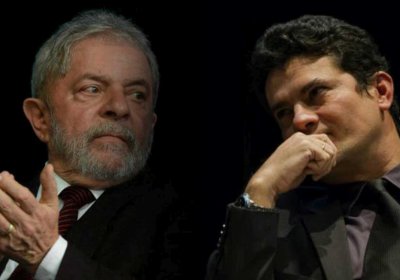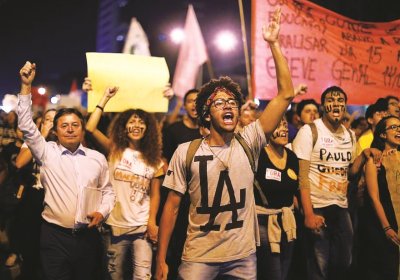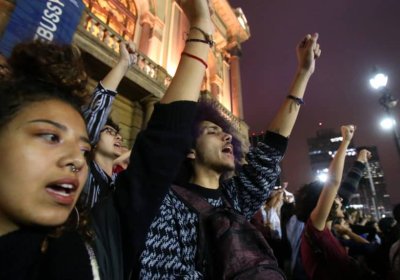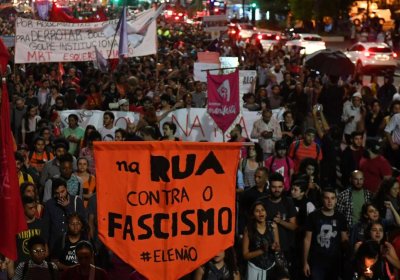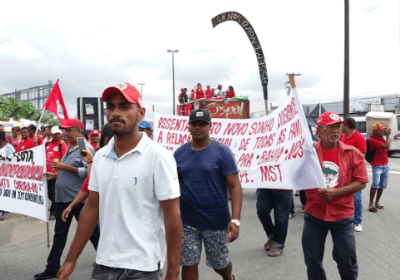On November 7, the Brazilian Supreme Court declared it illegal to jail defendants before their appeals’ processes have been exhausted. Within 24 hours, former President Luiz Inácio Lula da Silva was released to an adoring crowd of hundreds. Despite this, the corporate media is continuing its smear campaign against him.
Luiz Inácio Lula da Silva
I spent last week in the Brazilian Amazon in Porto Velho, Rondonia, on the edge of what is called the arco do incendios. The “arc of fires” is a region stretching along the yet-to-be-paved highways 319 and 230, between the towns of Humaitá and Apui in Southern Amazonas, a state that still had 98% of its virgin rainforest intact as of last year.
Messages between Brazil’s federal prosecutor, Deltan Dallagnol, who led Operação Lava Jato (Operation Car Wash) and then-judge, Sergio Moro, have revealed that the evidence used to jail Brazil’s Workers’ Party (PT) former president Luis Inacio “Lula” da Silva, was tenuous at best and that the charges against him may have been groundless.
A nationwide education strike on May 15 became the platform for the biggest anti-government protests since President Jair Bolsonaro took power.
Brazilian solidarity activists rallied in Sydney on April 7.
Speakers called for the release of jailed former Brazilian president Lula Da Silva and spoke out against the far-right government of Jair Bolsonaro and its attacks on democracy.
The unexpected strength of far-right demagogue Jair Bolsonaro in the October 7 Brazilian presidential elections sent shockwaves throughout the country, writes James N Green.
In a stunning upset that may radically alter the political landscape of Latin America, far-right leader Jair Bolsonaro won 46% of the vote in the October 7 presidential election in Brazil.
Bolsonaro fell short of the needed outright majority to avoid a second round, but he scored a far more decisive victory than expected, Democracy Now! reported.
Jailed former president Luiz Inacio Lula da Silva has increased his support by five percentage points and would win Brazil’s October presidential election if he was allowed to run, a poll by CNT/MDA showed on August 20.
This news came just days the United Nations’ Human Rights Committee said the Brazilian state must “take all necessary measures” to allow Lula, the candidate of the left-leaning Workers Party (PT), to exercise his full political rights as a candidate in the presidential elections.
Members of the Rural Landless Movement (MST) protested in front of Brazil's Federal Supreme Court (STF) on July 21, to demand former Brazilian President Luiz Inacio Lula da Silva be release from prison and allowed to register as a presidential candidate in the October general elections.
For those who have been following Brazil closely in recent years, the case against former President Luiz Inacio Lula da Silva is clear-cut. And no, it’s not about tackling corruption, it’s about subverting Brazilian democracy for the second time in two years.
Whether “free or imprisoned,” Luiz Inacio Lula da Silva “will be elected president” of Brazil following October's general election, said former Brazilian President Dilma Rousseff, speaking during a visit to Buenos Aires, Argentina, on May 1.
Dilma said the recent attacks on Lula and the Workers’ Party are all part of a “lawfare” against the left in the country.
Trade unions across the globe mobilised on April 23 to demand the immediate release from prison of former Brazilian president Luiz Inacio Lula da Silva.
- Previous page
- Page 2
- Next page


